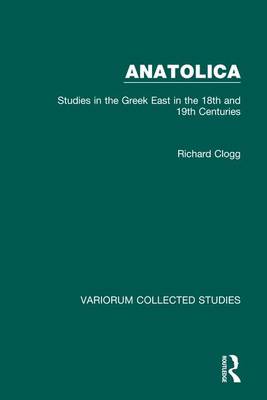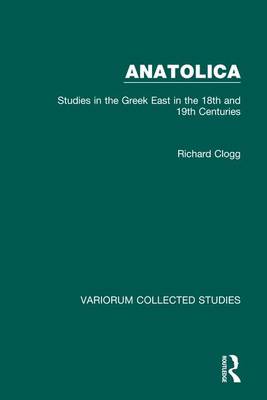
Je cadeautjes zeker op tijd in huis hebben voor de feestdagen? Kom langs in onze winkels en vind het perfecte geschenk!
- Afhalen na 1 uur in een winkel met voorraad
- Gratis thuislevering in België vanaf € 30
- Ruim aanbod met 7 miljoen producten
Je cadeautjes zeker op tijd in huis hebben voor de feestdagen? Kom langs in onze winkels en vind het perfecte geschenk!
- Afhalen na 1 uur in een winkel met voorraad
- Gratis thuislevering in België vanaf € 30
- Ruim aanbod met 7 miljoen producten
Zoeken
€ 97,95
+ 195 punten
Omschrijving
Until 1923 there were large Greek populations outside the boundaries of the Greek state in many areas of the Near and Middle East. These constituted what the Greeks term I kath'imas Anatoli ('our East') and were the focus for the Megali Idea, the 'Great Idea' of incorporating the Greeks of the region within a single state, with Constantiople as its capital. Professor Clogg deals here with the history of this Greek East in the 18th and 19th centuries and at the same time makes a contribution to the study of the Ottoman world within which they lived. The opening articles examine how these communities were defined, in religious terms (many were Turkish-speaking), and their organisation as part of the Ottoman system of government. Further studies then look at factors, economic, intellectual and messianic, which contributed to the emergence of the Greek state and its expansionist aspirations, and at aspects of religious history, including Protestant missionary activity and the Orthodox reaction to Enlightenment thought.
Specificaties
Betrokkenen
- Auteur(s):
- Uitgeverij:
Inhoud
- Aantal bladzijden:
- 336
- Taal:
- Engels
- Reeks:
Eigenschappen
- Productcode (EAN):
- 9780860785439
- Verschijningsdatum:
- 20/06/1996
- Uitvoering:
- Hardcover
- Formaat:
- Genaaid
- Afmetingen:
- 152 mm x 229 mm
- Gewicht:
- 616 g

Alleen bij Standaard Boekhandel
+ 195 punten op je klantenkaart van Standaard Boekhandel
Beoordelingen
We publiceren alleen reviews die voldoen aan de voorwaarden voor reviews. Bekijk onze voorwaarden voor reviews.









